The Charming Inconvenience Before Tourism
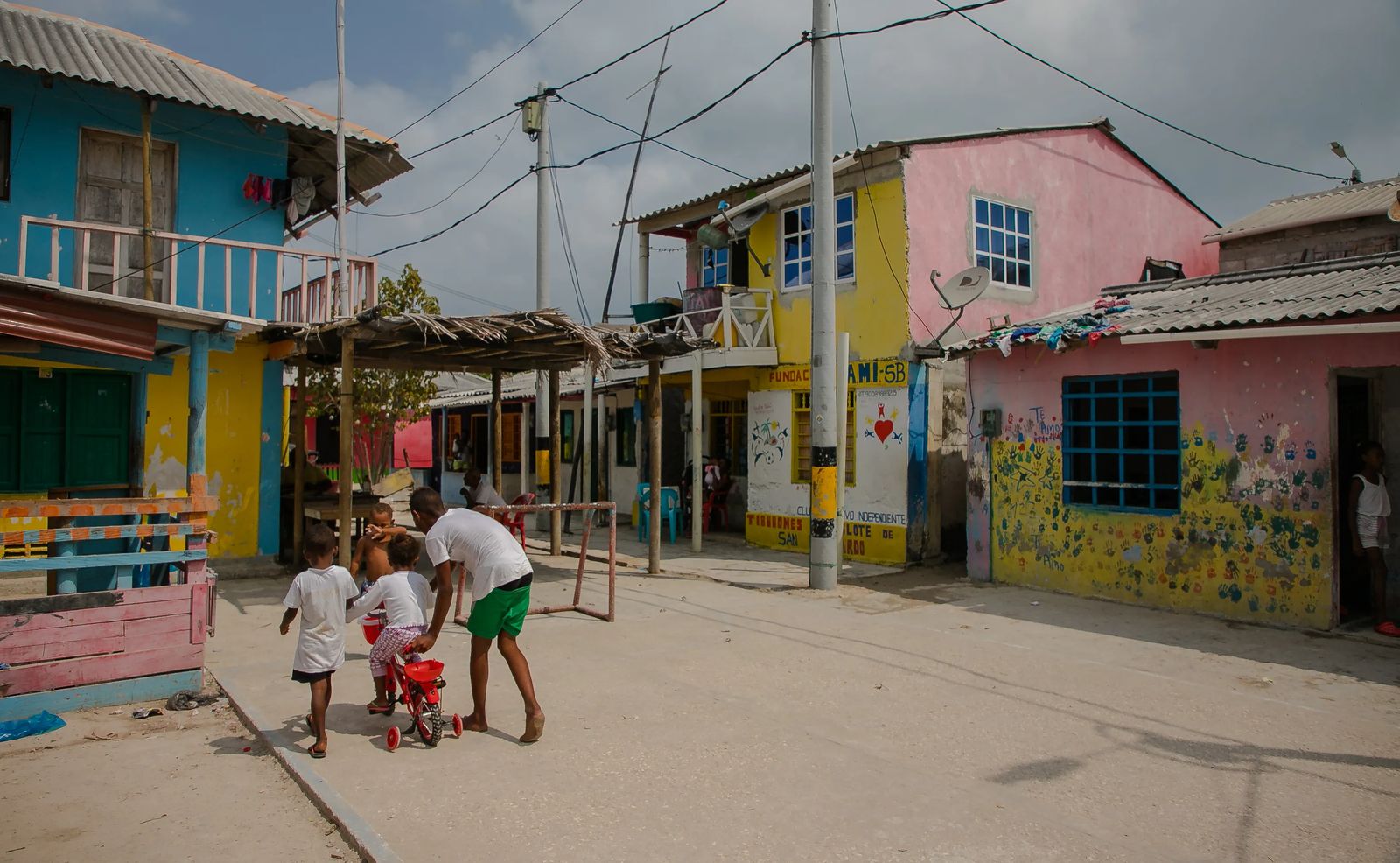
"We're stuck"
That was the last thing I heard before I hopped over the seat and into the murky ocean water to help a group of others move the commuter boat out of the harbor so we could enjoy the islands for the day. I couldn't help but laugh at the situation as this is the exact experience that happens and for some reason the lack of convenience at times I long for when traveling to places that have little tourism infrastructure. I also might have been chuckling at the other young guys there who were presenting themselves as tough guys until the moment they were asked to help then they just put their head down and tried not to be noticed.
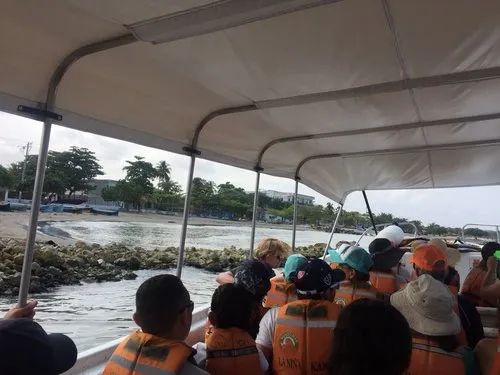
To arrive at such as destination required a flight, then a ride in a run-down minivan modified with extra seats to fit nine people so it could be called a "mini-bus." Our conductor was a middle-aged man with a perfectly round potbelly, who must have once dreamed of being a Formula-series driver. Upon further review, he is still working on keeping the car on the correct side of the road and not having near head-on accidents without reason. After a four-hour journey the group of young women behind us, who were previously strangers, were all holding hands in the backseat and the tiny old woman almost in tears from being horrified in the front seat.
After a few more negotiations, an argument with a swindler ghost-cab driver and a taxi, we finally arrived at our destination, the sleepy town of Tolú located on the Caribbean ocean. In this part of the country, it is rare to see tourists from outside of the country, and many Colombians have never been to the beaches of Tolú or the Archipelago of San Bernardo.
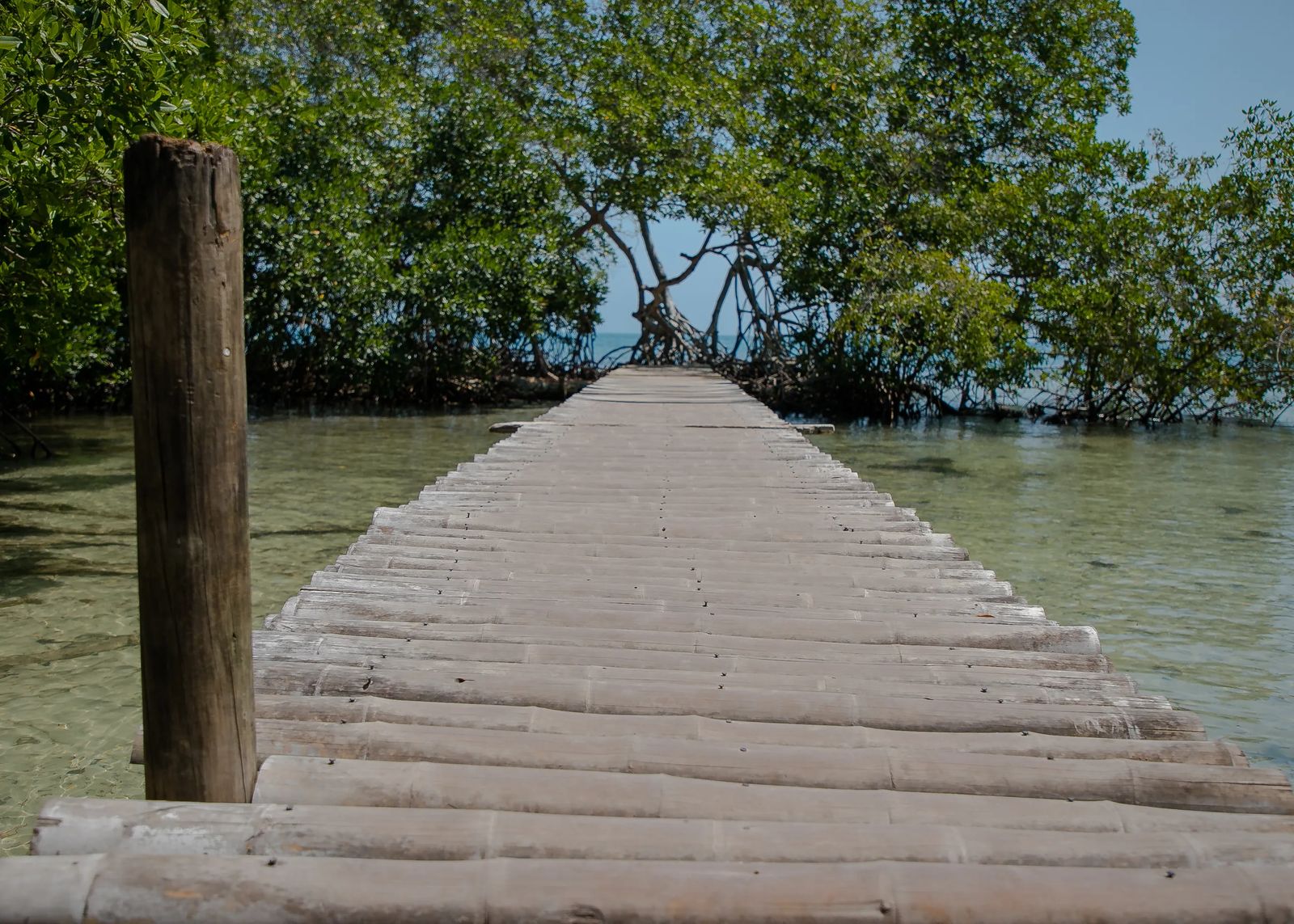
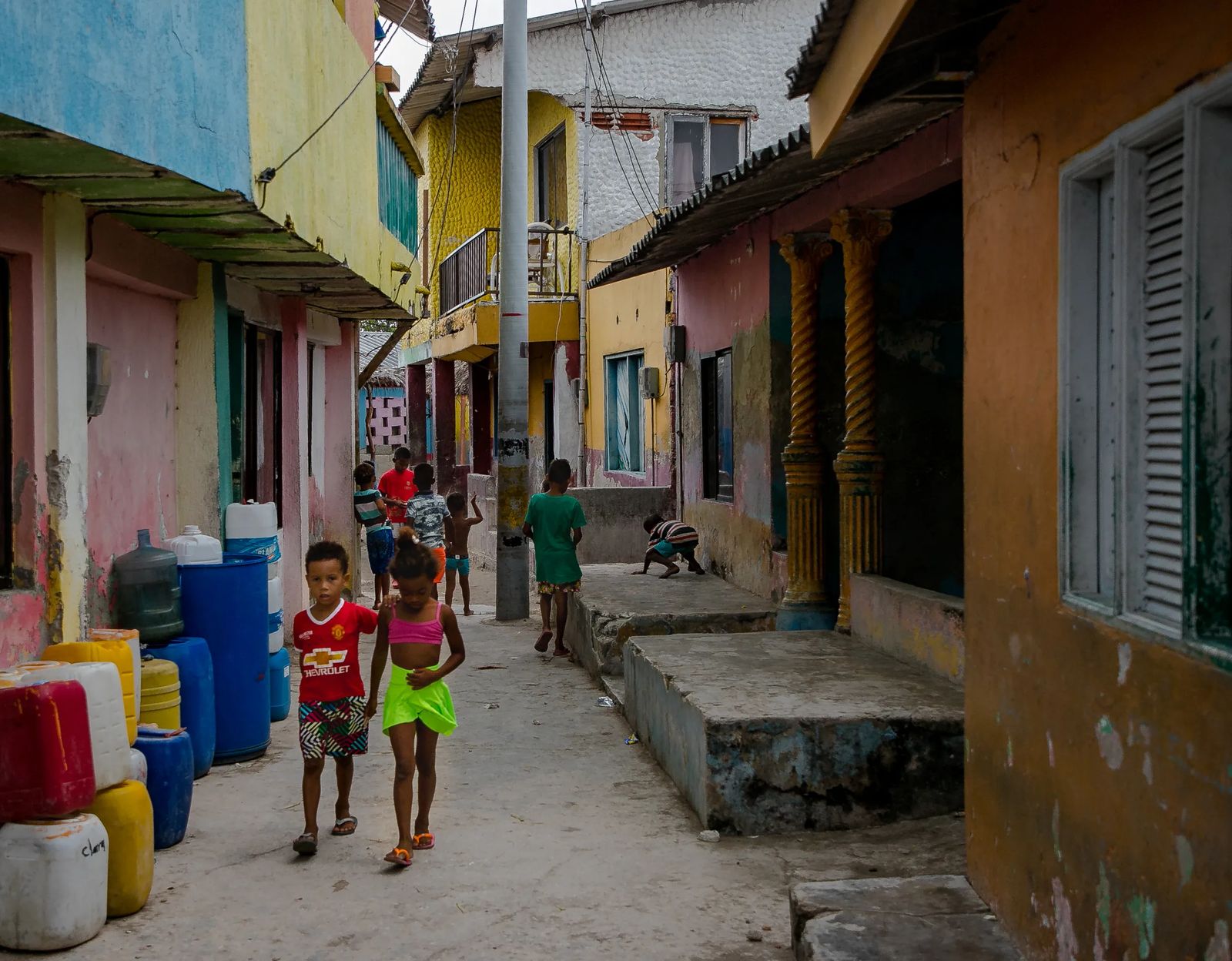
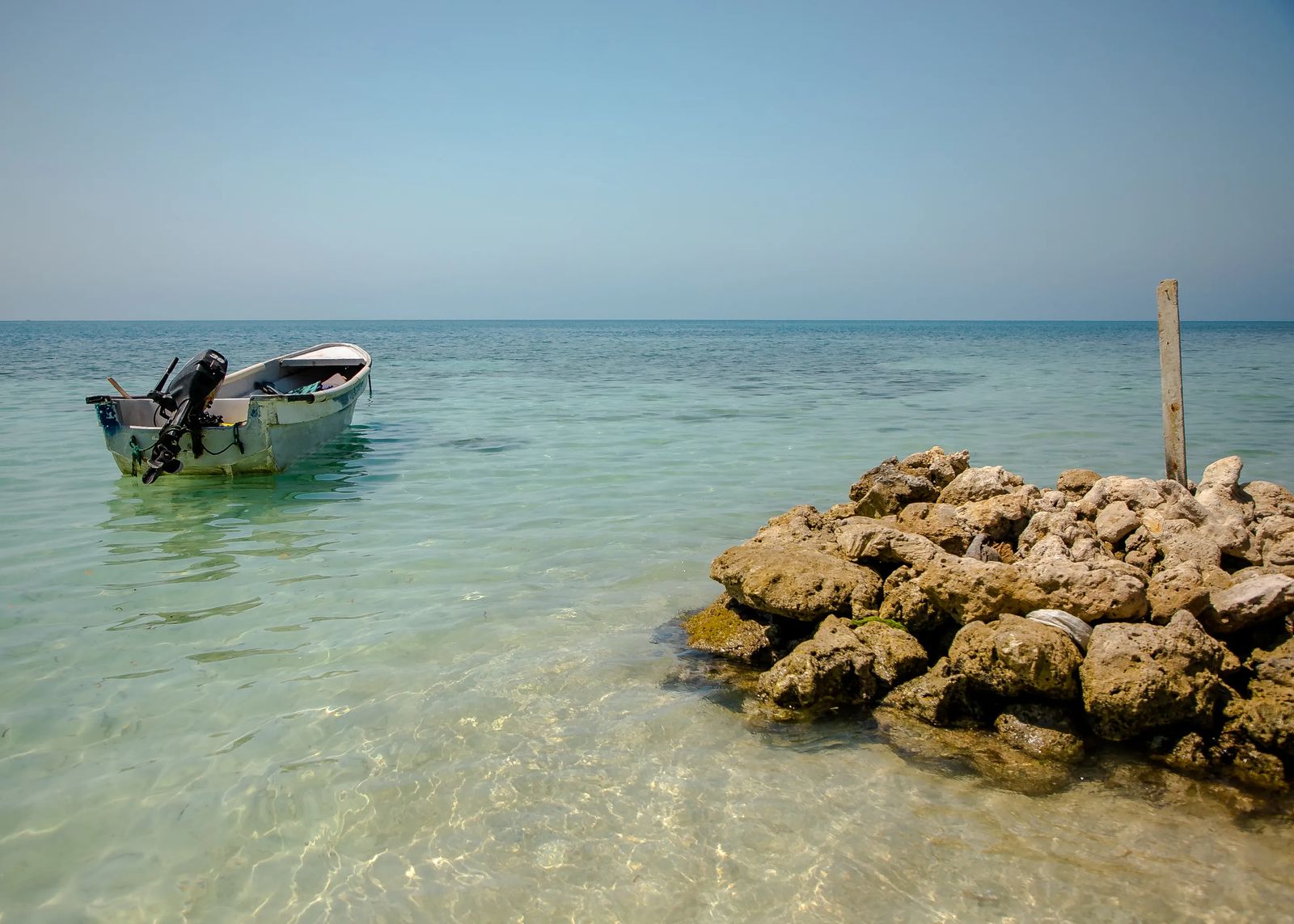
Located within the Archipelago are several islands including the small and quiet beach and mangrove island of Múcura, a few hostels situated on the water, and resorts on some of the more popular and larger island of Tintipán. Also included in the archipelago is the world's most densely populated island, Santa Cruz del Islote. The story of why settlers decided to take residence on the tiny island is to have been because the men and women who came to fish the area first tried to settle on the surrounding islands but the conditions proved better on Santa Cruz. Today, the island still is populated by fisherman as well as by men and women who work on the surrounding islands, which can be seen by the residents commuting to work and school every day by boat.
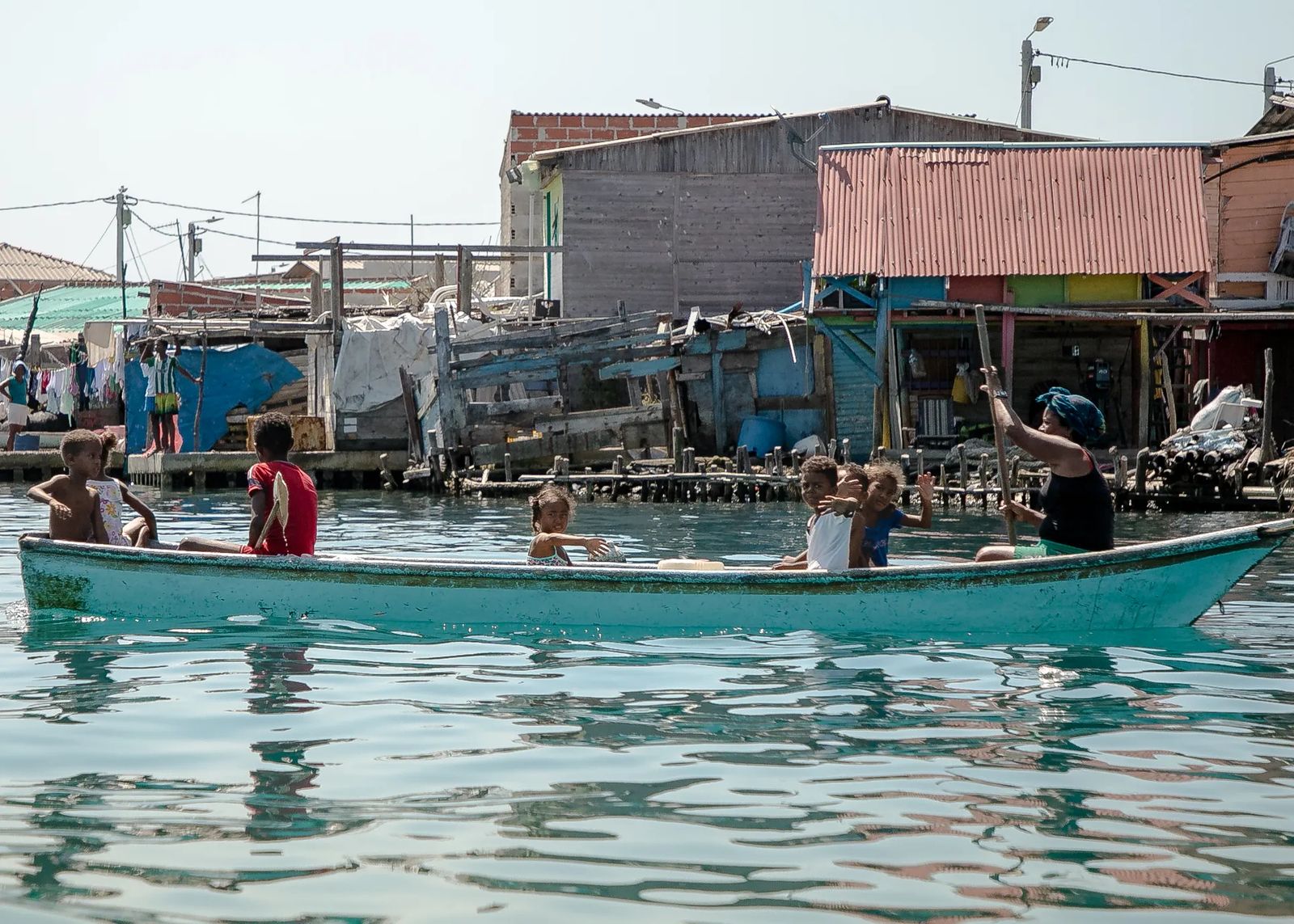
The children of the island wave as they travel to school by boat rather than bus.
It is indeed an adventure to reach these islands, especially during low-tide. Seeing multiple boats needing to be pushed out of the small harbor, or having to wade through waist-deep water to get back to shore is without warning when negotiating the price of the commute, but this also gives it a flavor of authenticity. It is also advised not to expect to remain dry during these boat rides; the captains are quite skilled, but the ocean waves can have a different idea for you that day. For two boat rides, and especially the last which included a three-hour boat ride back to Cartagena, all 40-passengers in the boat arrived at our destination soaked.
As I've written before, Colombia is in the infancy of tourism as it begins to shed it's past. Places like Tolu and the islands are an example of this and may not be prepared for the rapid influx of tourism. When thinking of Colombia, it is much like the movie Never Been Kissed where due to the violent past and complicated history, the country for so long was less than desirable -- however, now the country is the beautiful prom queen, and everyone wants to visit. The beauty is shining for the world to see (Disclaimer: I understand that I'm also one who has also fallen in love with the country) and getting world recognition as one of the top places to visit. Tourism can offer many advantages such as cultural exchanges, job creation, and improving infrastructure, and providing a voice to the world, though it can often be at the expense of exploitation of people and resources and the loss of authentic culture. As the country exists today, it is my opinion that the country is not ready for the rapid influx of tourism. For so long the people had challenging issues to deal with, and tourism wasn't a priority; with so much attention so quickly, it is easy to get caught up in the popularity contest without understanding the long-term consequences. However, if the country acknowledges this and manages it correctly, it also is in the unique position to be able to welcome tourism in an integrated and measured way to help preserve the resources and culture rather than sell out to the highest bidder, which would ultimately segregate future Colombia from what makes it precious today.
